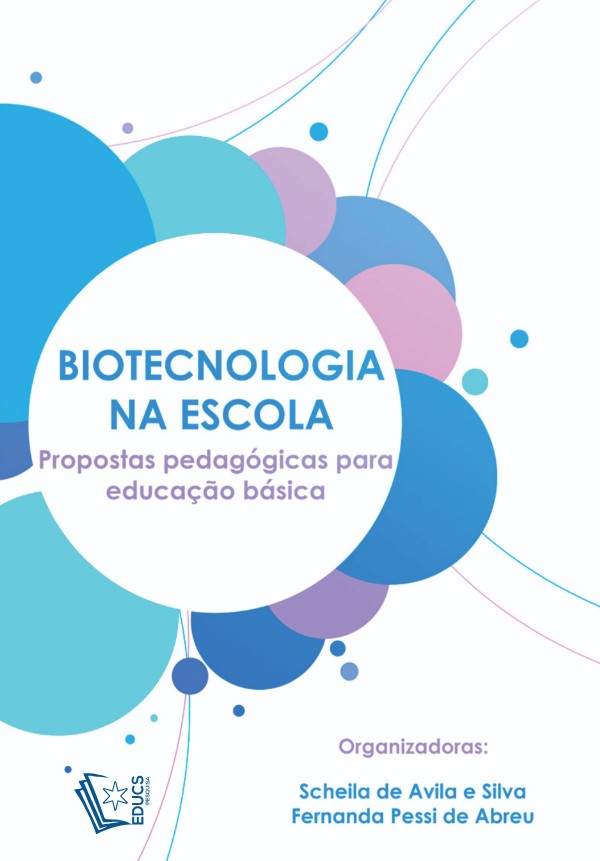Preface (Translated)
Like so many other bodies of knowledge, Biotechnology is deeply embedded in our daily lives. Its very definition implies that humanity has been benefiting from the discovery, investigation, and refinement of biotechnological processes since the earliest civilizations.
Indeed, from nutrition to pharmacology, from industry to ecology, from genetics to personalized medicine, biotechnology enriches the repertoire of practices and techniques whose products are essential to society. Therefore, it seems only natural that the teaching of biotechnology be included in school science curricula, as a way of bringing the general public—who often interact with its scientific products—closer to the field itself.
Based on this understanding, this e-book aims to explore the integration of biotechnology into school education. More than just presenting a few pedagogical activities that incorporate biotechnology into classroom content, the chapters throughout this book invite readers to reflect on science education more broadly, and on concepts that go beyond scientific subjects themselves: scientific literacy and thinking; bioethics; the role of biotechnology in society; science education as a tool against prejudice and misconceptions; ecological awareness; and other important ideas and activities that can be developed in the classroom.
The e-book “Biotechnology in Schools: Pedagogical Proposals for Basic Education” addresses the intersection between science and teaching—an especially important conversation in times when we are challenged to understand the many outcomes of biotechnological applications, from vaccines to genetically modified organisms, among many other examples.
These reflections are presented with authority, grounded in the experience, competence, and creativity of each contributing author throughout the work.
The efforts of the book’s editors are certainly rewarded in this final product, which invites educators to reflect on their own teaching practices and offers strategies that can inspire students to think more deeply about the nature of science, the exercise of critical thinking, and the relevance of biotechnology in the world around them.
